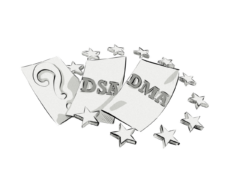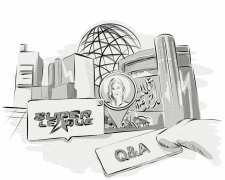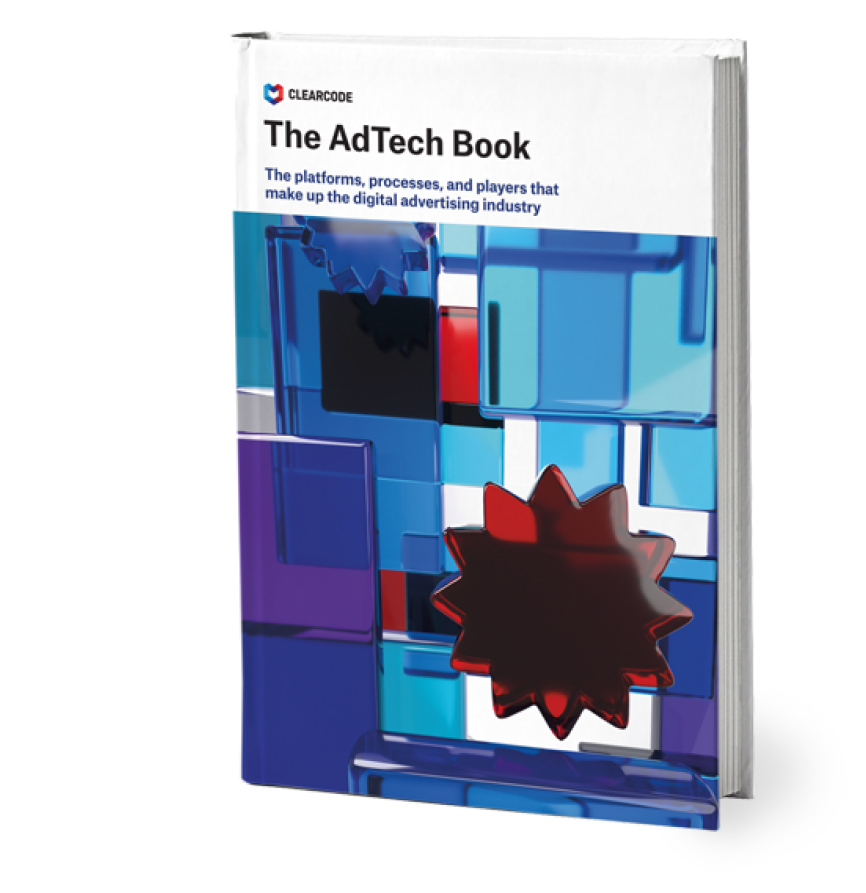The European Parliament’s recent approval of a controversial update to copyright law has certainly caused some stir. For one, it has divided the online community. Its proponents hail it a long-expected and much-needed change that adapts copyright law to the digital age; others say its effects will be broad and far-reaching, but hardly beneficial.
The law’s assumptions may also be completely unrealistic or difficult to introduce at best. It may soon require companies, including giants like Google and Facebook, to implement content filters, completely redefining the way we share things online.
The copyright law will force Google and Facebook to implement mechanisms allowing them to share revenues with rightful content creators. Critics claim it will destroy the Internet as users know it, only reinforcing the domination of big-media conglomerates and, by extension, possibly killing free speech.
What Is the New EU Copyright Law?
The EU copyright-directive proposal spans 13 pages and covers multiple areas of online activity and content. While its provisions mostly look innocuous, Article 11 and Article 13, known as “link tax” and “upload filter” respectively, triggered controversy that was not unfounded.
Here’s what the law, if not amended, could mean for the future of the Internet:
Controversy #1: Link Tax (Article 11)
Link tax is intended to improve the way agencies, publishers, magazines and newspapers make money online. Simply put, when companies or individuals link or reference an online article, the author will be empowered to charge applicable license fees.
A noble idea, isn’t it? Admittedly, this can help creators monetize their content, but the way the legislation envisions it, the tax seems poorly thought out and the consequences may be wrongheaded. There is currently no possibility to make a system that would efficiently verify the vast content published on the Internet every single day and infallibly pinpoint copyright and royalty violators.
Why the link tax is a problem
Link tax basically means that referencing anything online will be more complicated and require that royalties be paid to the original author. Such crude implementation works against the very foundations of the Internet, where the right to freely quote, share, reference, comment and parody various material has been long taken for granted and widely exercised.
With the new law in force, however, creating memes, mix-ups, mash-ups, compilations or reviews will always be associated with paying money, which independent, small creators may simply not be able to afford.
Controversy #2: Upload Filter (Article 13)
YouTube and Facebook and the like will be required to introduce automatic filters screening uploaded content and stopping illegal dissemination of copyrighted material.
Why the upload filter is a problem
- Up until today, YouTube would only remove copyrighted material if a party claimed infringement. In real life, however, many artists and authors turned a blind eye and enjoyed the wave of free exposure YouTube offers. “Sharing is caring,” the long-held tenet of the Internet, drives viral popularity and this, as we know, comes at a much higher cost than the royalties themselves.
- For platforms like YouTube, implementing a filter like Content ID may not take much effort, but for smaller players, the requirement may be impossible to meet and its effects could be disastrous. To get a bigger picture, YouTube’s own Content ID system cost $60 million to build. The filter compares uploaded videos against a database of copyrighted material and refuses to host illegal uploads. However, years after introduction, the system is still not perfect. It’s fallible and infuriating, especially for YouTube creators whose work involves a lot of referencing (e.g. music and video-game reviewers). This only gives an idea of what kind of endeavor developing a reliable system could be for small players.
- The new copyright law holds the content-hosting platforms liable for respecting copyright. With upload filters in tow, the regulation may force YouTube-like platforms to dump most of its user-uploaded content, even though the hosted creators may feel completely fine with their content being re-uploaded illegally and further disseminated. On top of that, Article 13 allows anyone to be a self-proclaimed censor. You just sign up for a “rights-holder” account on a platform and start claiming any posted content as your own. There is little in the way of stopping people from abusing the system.
- The law doesn’t affect big artists and creators; they are not very likely to care for YouTube’s minuscule royalties anyway. The group that the regulation does affect most are the up-and-comers – young artists who value recognition and free advertising above anything they could potentially earn from turning YouTube content 100% legal.
When Will It Be Implemented?
The updated law will not enter into force until a final vote in January 2019. This effectively means we may not feel its actual impact for some time now. However, the proposal is unlikely to be rejected. Following the vote, it will only take some time to be implemented in individual EU member states, whose interpretation of the directive’s text may vary.
What the EU Copyright Law Means for Online Advertising and Marketing
From the marketer’s point of view, the new EU copyright law is a spanner in the works, making content creation more difficult and unnecessarily expensive. This could spell the end of rich, cross-referenced articles (the one you are reading would not be an exception). Just think about how often marketers link to reports and other content in blog posts and videos.
The copyright law will slow down production of all sorts marketing content, especially aggregated content, or even stop it from being economically viable for smaller businesses.
From a technical perspective, AdTech and MarTech vendors will likely have to build new features to address the rules in the EU copyright directive, such as the aforementioned copyright filters. With many advertising and marketing technology companies still working through adjusting their platforms to the EU’s GDPR, adding in another hurdle to jump over will mean more money spent on development resources that don’t bring about any direct increase in ROI.
Conclusion
“It is a very big cost to take on board, and it is not a one-off – it is something that needs to be maintained,” says Siada El Ramly, director of a group representing Facebook, Google and other Internet platforms. The fight with illegal uploads is an expensive uphill battle and may never reach a conclusion. This means that implementation of the new EU copyright law may turn out to be a pie in the sky, and unlikely to benefit anyone.








